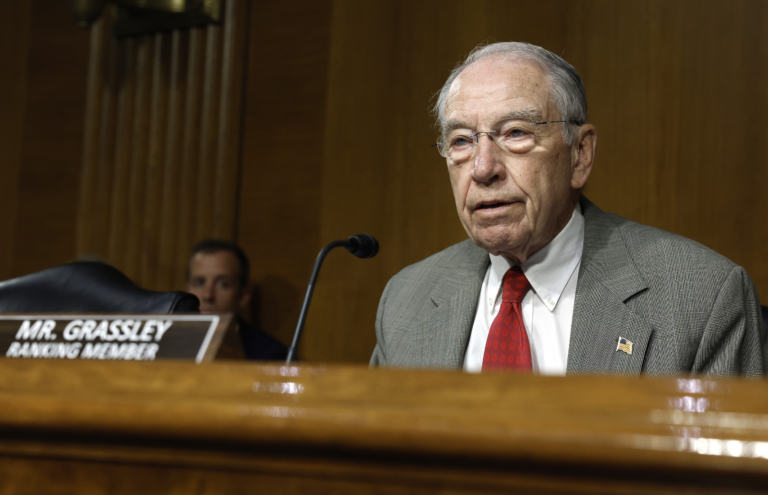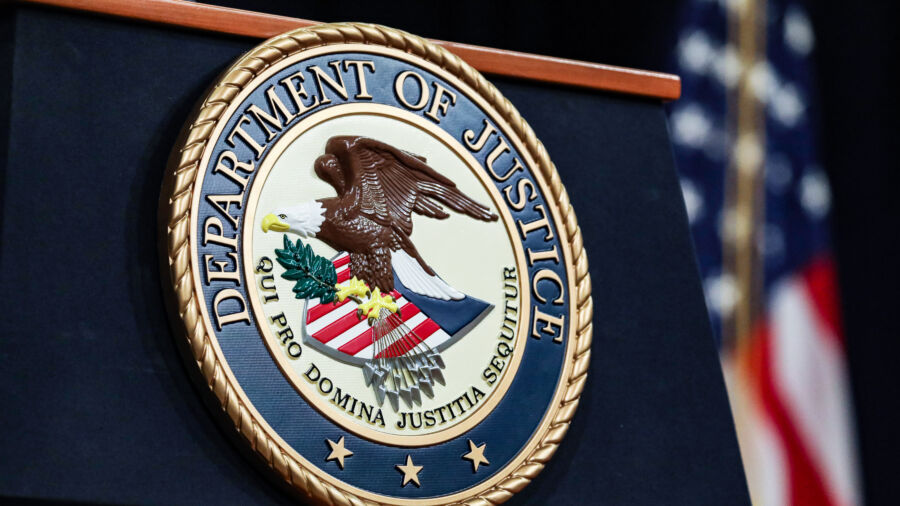The Department of Justice (DOJ) forbade Google from disclosing to Congressional staffers that the DOJ had obtained access to their Google accounts, according to court documents.
This revelation resulted from a Freedom of Information Act (FOIA) filing by nonprofit watchdog Empower Oversight.
“Empower Oversight has obtained copies of five previously sealed court orders between 2017 and 2021 that prohibited Google from notifying Congressional staff that it had turned over their email and text records to the Justice Department,” said the Virginia-based non-profit in an update on their FOIA.
Empower Oversight said that these newly public orders were attached to the latest in a series of FOIA requests regarding the DOJ’s previously secret efforts to collect information on the communications of attorneys for congressional committees conducting oversight of the DOJ itself.
The five previously sealed court orders show that the DOJ asked Google not to disclose to the account owners that the DOJ had obtained access to texts, emails, and other information in their Google accounts.
The DOJ acquired these gag orders after an appeal to the U.S. District and Bankruptcy Courts for the District of Columbia and after a judge ruled in favor of the DOJ.
The founder of Empower Oversight, Jason Foster, had his communications given to the DOJ as well—at that time, he was the chief investigative counsel to Senate Judiciary Committee Chairman Chuck Grassley, a Republican, directing congressional oversight investigations into waste, fraud, abuse, and misconduct at DOJ.

The DOJ gave as justification for not disclosing its actions that the people investigated by the DOJ might flee prosecution or tamper with evidence.
Given the circumstances in which this was done, however, Empower Oversight said that the legality of what the DOJ did is questionable.
“The circumstances raise serious questions of whether the claims made by the Justice Department to the court were true and whether those claims actually support the orders,” Empower Oversight said.
Subpoenas Issued to Google
The DOJ issued subpoenas to Google in order to get the personal information of the people it wanted, and then, using the court order, it ordered Google to keep these subpoenas secret.
According to the Empower Oversight FOIA letter sent to the Attorney’s Office for the District of Columbia on Nov. 30: “For each of the listed telephone and email accounts, the subpoena compelled Google to release customer or subscriber information, as well as subscribers’ names, addresses, local and long-distance telephone connection records, text message logs, records of session times and durations, length of service, and types of service utilized for the period from December 1, 2016 to May 1, 2017.
“So, not only did the subpoena compel the release of identifying information of the subscriber to each account, but it also compelled the release of records indicating with whom the user was communicating.”
The court orders—which were sought by the DOJ during both the Trump and Biden administrations—appear to be related to the same investigation, according to Empower Oversight.
This investigation resulted in the prosecution of former Senate Intelligence Committee Security Director James Wolfe in 2018. Mr. Wolfe pled guilty to making false statements to the FBI about contacts with reporters covering the committee’s investigation into Russian election meddling, reported NBC News.
The DOJ requested and received three additional one-year renewals of the nondisclosure order after the Wolfe prosecution.
Questions Over What is Justified
Empower Oversight President Tristan Leavitt wrote, regarding the legality of the DOJ’s gag order, “There are serious questions about how DOJ justified its application for orders under § 2705(b) to mandate the nondisclosure of the subpoena for Mr. Foster’s records in 2019, 2020, and 2021.
“It would have been impossible on the dates of the renewal requests for Mr. Foster to destroy the records initially sought because Google had already produced them to the government years earlier.
“It raises the question of whether DOJ was forthright to the court when seeking the orders, and whether DOJ, as a matter of law enforcement policy, routinely applies for extensions to conceal such orders regardless of whether it has any legitimate basis to do so—or whether it did so in this instance merely to conceal its broad, unsupported dragnet approach for the personal communications of Congressional Members and staff for as long as possible to the avoid the very controversy now arising, with multiple letters from Capitol Hill oversight authorities and an active Inspector General investigation ongoing.”
Mr. Foster received a notification from Google on Oct. 19 that the DOJ, in 2017, had obtained records of a Google Voice telephone number connected to his family’s telephones.
Other attorneys have publicly referenced receiving similar notices, including former U.S. House of Representatives Permanent Select Committee on Intelligence (“HPSCI”) staffer Kashyap Patel.
The Justice Department’s Office of Inspector General is reviewing the DOJ’s use of subpoenas to obtain these communications.

